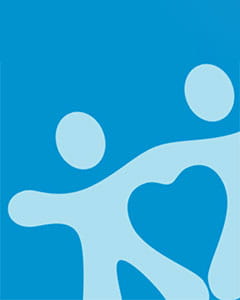Preparing your child for surgery
Hearing that your child needs surgery is difficult for many families to digest, and can often result in increased stress and anxiety leading up to surgery day. For many parents and children, the fear of the unknown leaves them with many questions relating to the preparation for surgery, the surgery procedure, and recovery after surgery. Sometimes for children, the unknown is their best coping tool in preparation for surgery as they think, “If I don’t know the details of the surgery, then I don’t have to think about it and therefore it won’t happen.” For many children and parents alike, denial and avoidance is a common stress relief tactic. However, the child is probably thinking about surgery day as he/she overhears conversations between adults about the surgery, and is likely picking up on their parent’s stress. The child has also been going to doctors’ appointments that are necessary before surgery, making it that much more real to the child. Knowing what to expect on surgery day can actually help ease those feelings of stress and anxiety, and help to eliminate misconceptions that the child may be envisioning.
How do we help ease a child’s fears of surgery at Arnold Palmer Hospital?
At Arnold Palmer Hospital, we offer a free, educational program called Project P.L.A.Y., which is designed to help your child understand what to expect before surgery and during their hospital stay. The program is led by a child life specialist who will walk your child, siblings, and you through what to expect leading up to surgery, as well as what to expect after surgery.What does the program entail?
For younger children, our child life specialists use a teaching doll to explain what’s going to happen before and after surgery – all on an age-appropriate level. This can include things such as: IVs, catheter, and any other tubes or medical items they may see on their bodies before or after the procedure. They also show the child what an anesthesia mask looks like and explains that “sleepy medicine” helps them so they won’t feel anything during surgery.For older kids and teens, the child life specialist may go more in depth by discussing in more detail the process of surgery, as many teens are curious about the different medical items that will be used on their body, as well as privacy issues. They will also talk about pain management ahead of time to begin building a plan for coping and distraction methods that may help ease discomfort.
For all patients going through the program, families will also be able to tour the pre-op rooms, or “get ready” rooms, as well as the unit they will be staying in if they will be inpatient following the procedure.
Are there any benefits to those other than my child?
Although the program is primarily directed towards patients, it can help provide comfort and understanding to the parent as well. Even though a physician will explain the ins and outs of surgery and what to expect, being able to actually see beforehand the reality of what their child will wake up with attached to their body helps prepare families for what’s to come. It’s also important for siblings to be educated on what their brother or sister will look like after surgery, as they will need to be extra gentle and caring during this time.And the benefits don’t stop there! Having the opportunity to get to know a family during the appointment helps our child life specialists do their job even better. Knowing how the family interacts with one another and becoming a familiar face to the family helps the specialist know how to respond when the anxiety and stress of surgery kick in. Likewise, when our child life specialists have the chance to get to know older patients before the day of surgery, they are able to more easily pick up on clues when a child can’t express their pain or identify their needs.







